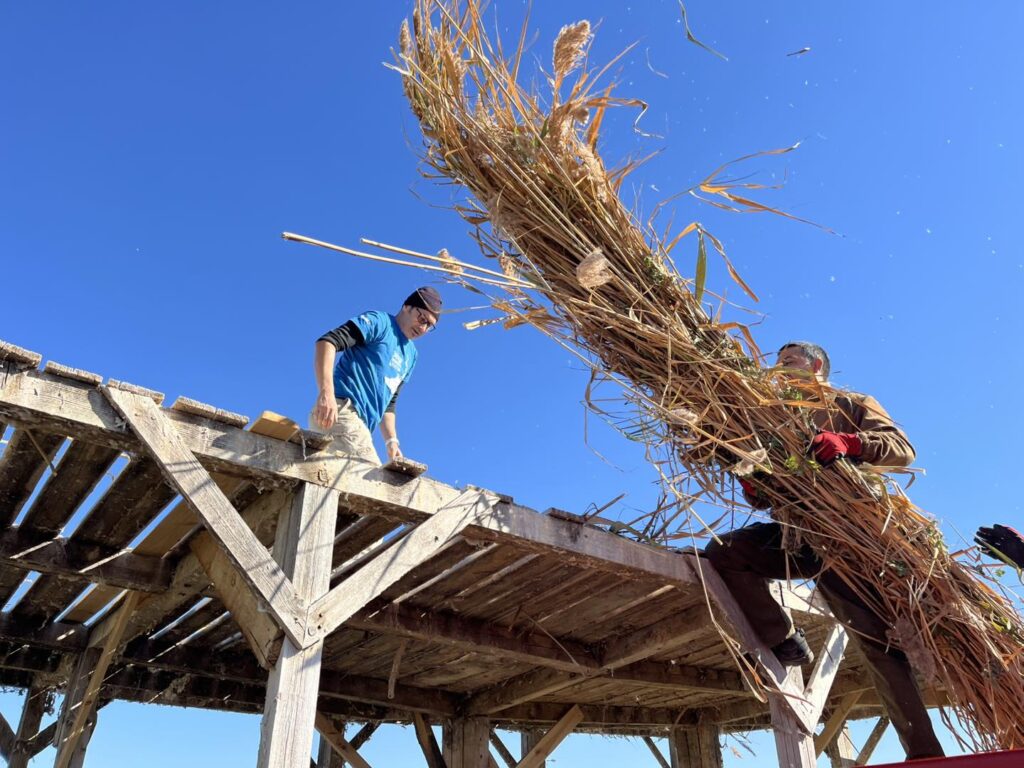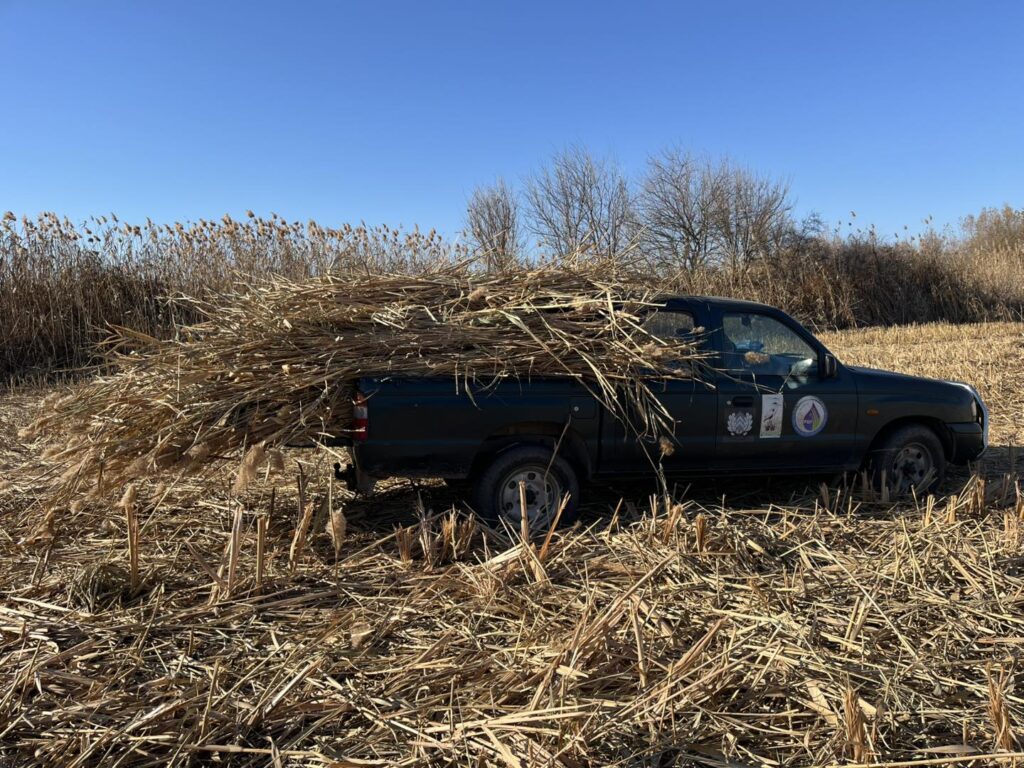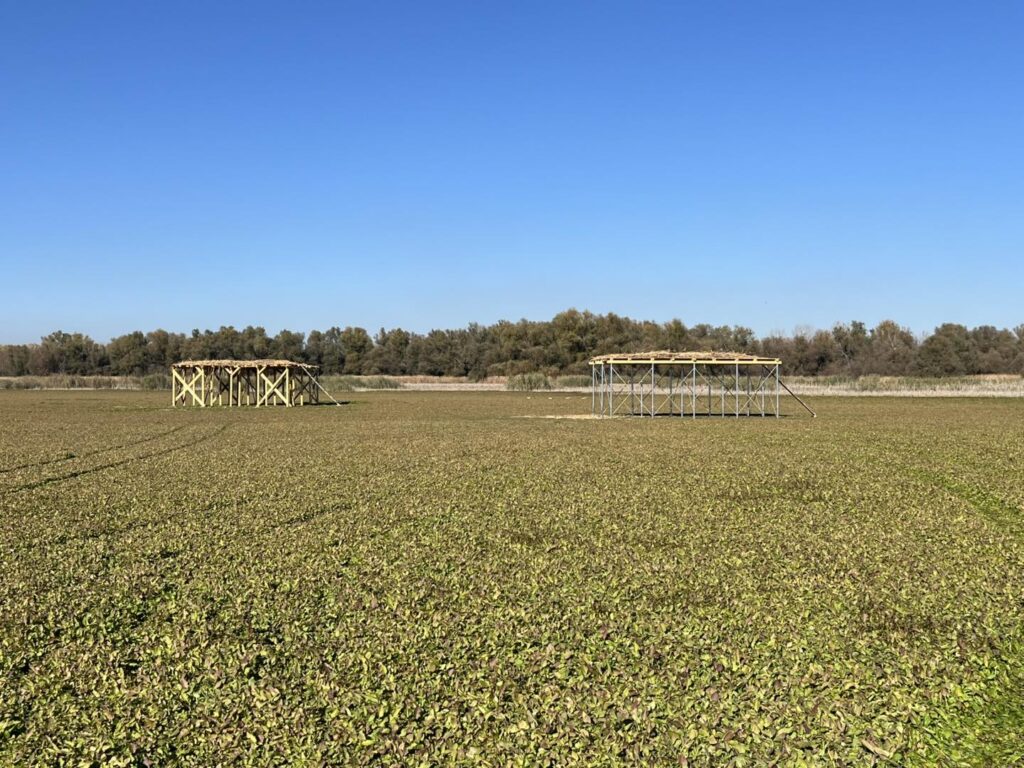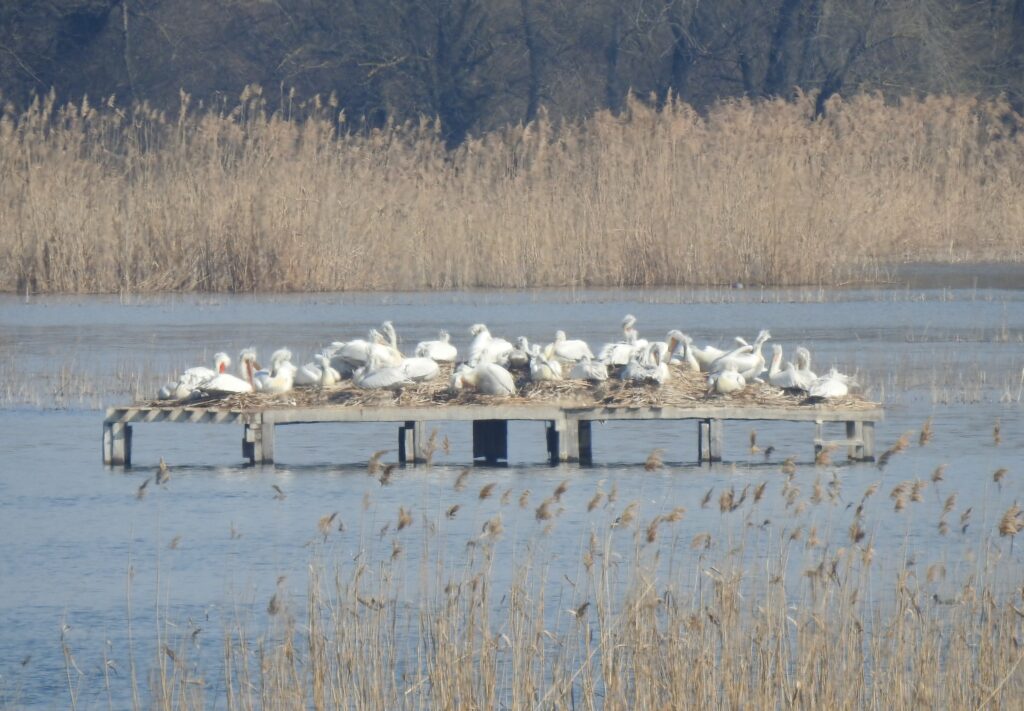At the end of 2024, significant strides have been made in enhancing the nesting of Dalmatian pelicans in Persina Nature Park in Bulgaria. The Directorate of the Park has completed the construction and repair of four wooden nesting platforms, crucial for the survival and reproduction of these magnificent birds.

Located in the “Persinski Blata” Maintained Reserve on Persin Island, these platforms offer a combined nesting area of over 180 square meters for the pelican colony in the park.
The nesting platforms are a temporary solution until large-scale wetland restoration efforts in Europe create favorable nesting conditions for the Dalmatian pelican. These platforms, which resemble natural islands and are protected from predators, have proven to be effective and are being constructed in many countries, including Greece, Bulgaria, and Ukraine.
Revitalizing nesting sites
Two of the platforms are entirely new, while two others were repaired on the sites of previously damaged structures in the Peschina and Murtvo Blato marshes. These wooden platforms require annual maintenance, including structural repairs, cleaning, and the addition of fresh reeds. The reeds are vital, as they serve as a natural nesting material for the pelicans, playing an essential role in nest formation.

Collaborative efforts
The maintenance and reed-covering process brought together an inspiring group of volunteers, including students from the Faculty of Natural Sciences at Bishop Konstantin Preslavski University of Shumen, local school students, and representatives from environmental organizations.
While the “Pelican Way of LIFE” initiative is nearing its conclusion, the annual maintenance of nesting platforms remains a priority. These efforts are part of the regular activity plan of the Persina Nature Park Directorate and will continue to ensure a sustainable habitat for the Dalmatian pelicans in the coming years.

Looking ahead: the importance of water
The team working to protect Dalmatian pelicans is now eagerly awaiting high water levels in the Danube River. The presence of water in the wetlands is a critical condition for the pelicans to successfully raise their young. As the new nesting season approaches, hopes are high for a successful 2025 breeding season.
This incredible effort underscores the power of collaboration, dedication, and a shared passion for preserving nature. The continued success of these initiatives ensures that the Dalmatian pelican will remain a symbol healthy and well-connected wetlands in Europe.

Vital support
This year’s platform construction was made possible through generous contributions, including the “Living Danube” award, donations from a nature-inspired film crew, support from individuals like Stoyan Mihov and long-standing efforts by like-minded supporters.
The repair activities were carried out as part of the international initiative “Pelican Way of LIFE” funded by the LIFE Programme of the European Union and Arcadia Foundation, and with the assistance in Bulgaria of the Whitley Fund for Nature.